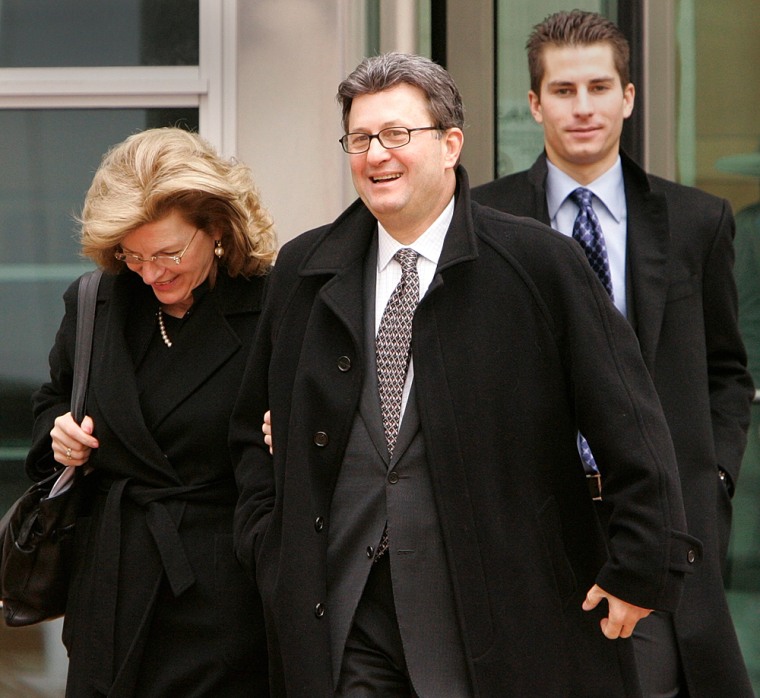After hearing three weeks of evidence, a Denver jury began deliberations Thursday in the $101 million insider trading trial of former Qwest Communications CEO Joe Nacchio.
Nacchio, 57, faces 42 counts of insider trading; each count carries a penalty of up to 10 years in prison and a $1 million fine.
Prosecutors allege Nacchio accelerated his Qwest stock sales in 2001 after learning Qwest Communications International Inc. was facing difficult if not insurmountable challenges to achieve its own revenue projections.
They say Nacchio backdated a document committing him to sell shares from December to November, a date before financial warnings began to roll in.
Defense attorneys insist Nacchio sold the stock legally because he believed Qwest would succeed in wake of its 2000 acquisition of former Baby Bell U S West Inc. Defense attorney Herbert Stern emphasized during closing arguments Wednesday that Nacchio didn’t sell all his stock.
Scott Robinson, a Denver defense attorney who has closely followed the trial, said the closing arguments from both Stern and prosecutor Cliff Stricklin were so compelling that they made the complex case even tougher for jurors to decide.
Although he was leaning toward Nacchio’s acquittal, “it’s a close call,” Robinson said.
The case against Nacchio grew from the government’s investigation into an accounting scandal at Qwest Communications shortly after it acquired U S West, a primary telephone service provider in 14 mostly Western and midwestern states.
Federal regulators have said Qwest falsely reported fiber-optic capacity sales as recurring instead of one-time revenue between April 1999 and March 2002, which eventually forced the company to restate $2.2 billion in revenue.
Nacchio, who was hired to turn Qwest into a major telecommunications player, appeared optimistic about the Denver-based company’s future in wake of the acquisition, telling investors it would generate double-digit growth in its first five years.
But in the fall of 2000, business unit managers began warning Nacchio that company financial targets were too optimistic.
Prosecutors say Nacchio concealed that information from investors and illegally began dumping stock.
“The only thing that stands between him and that money is you,” Stricklin told the jury Wednesday. “You have the power to set the standards of justice in this community.”
Robinson said two of the prosecution’s strong points are the allegations of the backdated commitment to sell and Nacchio’s own words before the trial, like when the then-CEO told an analyst that “you can never believe what management says at the time of a merger.”
Nacchio never took the stand during the trial.
The defense has a solid argument in the stock options Nacchio retained when he could have sold them all, Robinson said.
